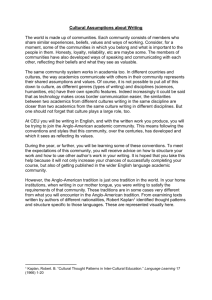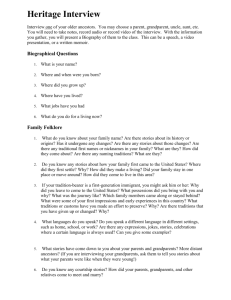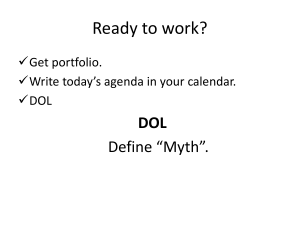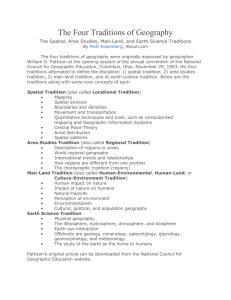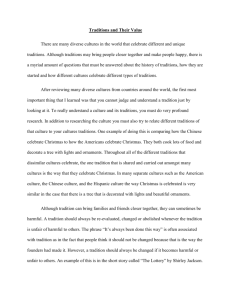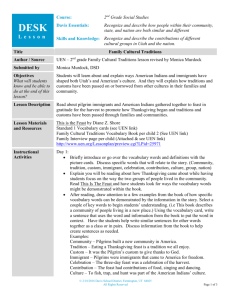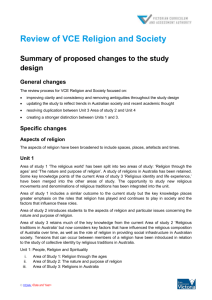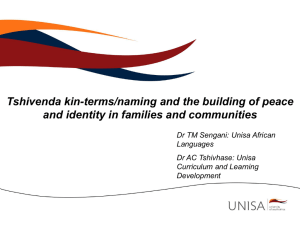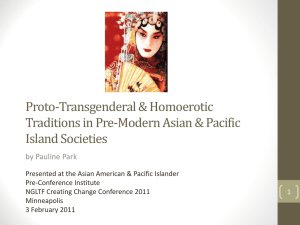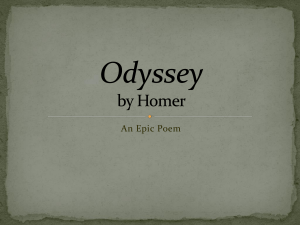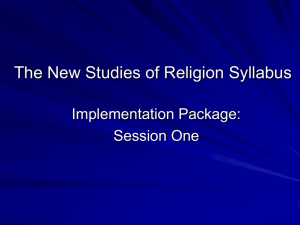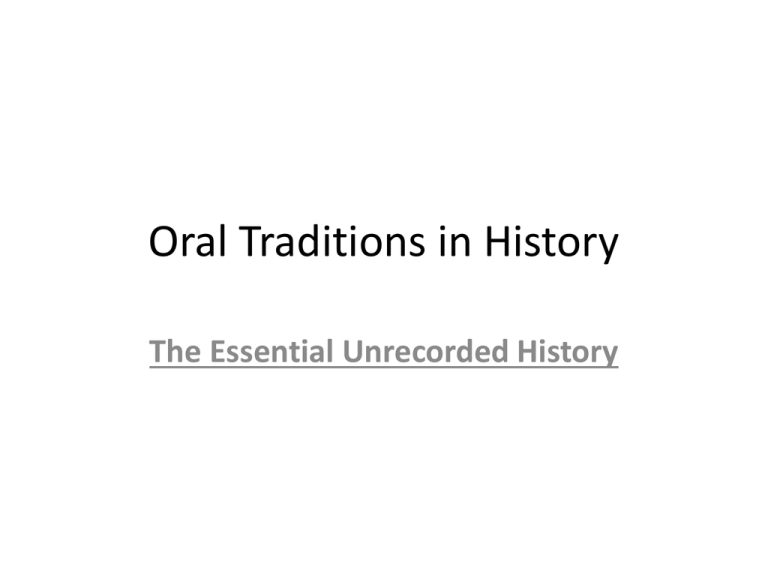
Oral Traditions in History
The Essential Unrecorded History
Oral tradition vs. Oral history
• Oral traditions take a number of forms:
-news, gossip, verbal arts of poems/songs,
dreams, epics
• Oral history: taking down and recording verbal
recollections based on set questions is one
part of a record that can be used to write
history
• These provide for the invention or
perpetuation of “tradition”
Oral Traditions
• What is a tradition? What is the invention of
the tradition –eg?
• History must serve the present day needs:
What sorts of needs? Who is served?
Patriarchy, ethnic identity
• How does oral tradition work: 2 examples
1. Memory palace and kin
2. Heroic tales
Oral Traditions
• Many societies do not, or did not have
developed literacy or literature.
• Does not mean they have no history: history is
not just about the written record.
• Oral traditions can be corroborated and
verified –they can also be used to correct and
amend written records –see Jan Vansina. The
Oral Tradition as History (Madison WI, 1985)
Oral societies and Traditions
• Many societies have finely-tuned and very accurate
means of conveying history in oral form. Vansina notes
a good historian, grounded in the local linguistic and
cultural context can achieve a very high level of
reliability with oral traditions
• History is driven by the questions we ask of it, and the
needs we have. Our society would obsess about cars,
vs. pastoral society and cattle. Know and ask the right
questions to find accurate answers.
• History is about messages people want to convey and
the reconstruction of a past to serve the present –so
what people remember often has much meaning.
The use of oral traditions in history
The tradition:
-Must tell a message set in time
-Must intend to communicate about the past
and its meaning for the present
-Historian must consider the context of the oral
performance-where is it being told, when,
why, for whom.
-Must note patrons and performers;
oppositional tensions
Oral Traditions: Examples
• Construction of historical consciousness shared by many: myth,
prophecy and memory: Story of Nongqause and the Xhosa Cattle
killing: People remembered the past in and idealized way. She drew
upon this –led to calamity in context of broader crises. The episode
is remembered as oral tradition and warning
• Praise poets: Leadership, history and public performance
• Dates and historical context for non-literate society
• Myths can have strands of historical truths that incorporate new,
seemingly unrelated material over time: Eg Kuba people of Zaire:
Foundation myth of first family can explain geographic origins,
development of iron technology, expansion of trade to the coast.
• Twi –Ghanaian poems
• http://www.youtube.com/watch?v=GmFzpFDySmo
Pabuji: The Rajasthani Epic: William
Dalrymple’s “Homer in India”
• In Rajasthan, India, oral epic poets (shamans and bards),
the Bhopas and Bhopis (female) perform lengthy, detailed
and accurate oral recitations of the story of a heroic semidivine warrior, Pabuji.
• The Phad-a beautifully painted scroll depicting major parts
of the story of the hero Pabuji –he saves the cattle of a
princess/godess.
• It serves a sort of mobile temple, and brings the allows the
spirit of god Pabuji to be invoked.
• Tradition of recitations carried on down generations by
Bhopas and audiences
• “To earn our bread. Performing for Pabuji
•
http://www.youtube.com/watch?v=WNzje_Lim54&feature=related
India and oral Epics
• Epic tale of Dev Narayan –hero, a cattle herder who
avenges father’s death in a great caste war and
becomes a god• Epic tale told at the temple to the god Dev Narayan is
reinforced by cattle and horse society.
• The Dev Narayan Festival provides for trade of livestock
and an understanding of who the Gujar people (of this
region) are
• Helps preserve their caste identity in a context of
thousands of castes and sub-castes.
• The perpetuation of illiteracy means the preservation
of bhopas who can recite oral epic.
•
http://www.youtube.com/watch?v=WNzje_Lim54&feature=related
Indian oral epics
• Bhopas –caste of artisans, can recite hours of epic
poems over many days
• -Follow formulas of memory grounded in nonliterate society. Sharp memories –no competition
for visual or reading attention
• Reinforced by religious, social and economic
meaning: cattle economy, heroic gods who
protect cattle,
• Festivals: public performance and ritual
associated with socializing and economic
exchange

